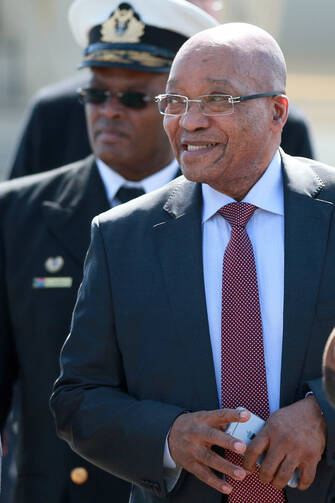Though South Africans can still pride themselves on much higher voter turnout than in many of the longer-established democracies, we tend to be less interested in municipal elections. For some reason, perhaps the lower level of active campaigning, rhetoric and general razzmatazz that goes with them, we tend not to worry too much about city councillors. This is a mistake, but one that I suspect we won’t make later this year when across the country the local district, town and “metropolitans”—South Africa’s big cities—go to the polls.
It’s ironic, isn’t it? Here in South Africa, as I suspect in the United States and elsewhere, citizens are less likely to vote in the area of governance that affects them most directly. All South Africans experience the hand of government at local level: service delivery (be that electricity, water, sanitation and environmental management, policing and to some extent education) is managed locally or in rural districts regionally. Though lacking the cachet associated with formulating and implementing national policy and foreign relations, local government is the face of policy, the lived experience of nationally-formulated domestic programs. We should care a lot more, but until now at least we don’t.
I’ve already suggested one reason why we don’t care much who manages us: the lack of political razzmatazz. For many politicians it’s a stepping-stone to higher things, a place to get known not so much to citizens as to their parties. And the electorate know this instinctively and perhaps responds in kind.
We also know that local government is least funded by the national treasury compared to national and provincial structures, which is also ironic given government’s professed commitment to people-centered human development. Resources from the increasingly centralized state are filtered down from national through provincial ministries. It is in many respects the opposite of the decentralization despite the way local empowerment is paid lip-service to by the state and embraced by civil society organizations and Catholic social teaching’s principle of subsidiarity.
This year I suspect things may play out differently. At roughly midway in Jacob Zuma’s second (and constitutionally last) term as president of South Africa polls and growing numbers of protests both suggest a growing discontent with the ruling African National Congress (A.N.C.). Some opposition parties, notably the centre right Democratic Alliance (D.A.) and the far left Economic Freedom Fighters (E.F.F.), hope that this will translate into an increase in seats in local government—an indicator of similar growth in the 2019 national elections.
All parties will almost certainly contest the local elections with greater vigor this year. For the A.N.C. the challenge will be to prove that despite the polls and protests, the growing discontent with Zuma, political cronyism and a combination of poor policy and even poorer implementation, it still enjoys popular support. For the opposition the challenge is to prove the opposite.
The political indicators suggest that in many of the big metropolitans—notably Cape Town, Port Elizabeth, Johannesburg and Tshwane (Pretoria)—there is potential for political upsets. While Cape Town is already a Democratic Alliance-run city, and comparatively better managed than the others, the growth of black African migration from A.N.C.-dominated rural areas to the city could prove a challenge. Conversely in the other metropolitans poor service delivery under A.N.C. governance may tip one or more of them into opposition hands. Central to this is the degree of alienation of the new (and quite substantial) black middle class: will they finally make a break with their A.N.C. tradition in favour of the D.A.
The “wild card” in this is the E.F.F., a left-wing breakaway from the A.N.C., who have apparently gained significant support among young black voters disillusioned with the slowness of socio-economic empowerment of black South Africans under A.N.C. rule. Substantial E.F.F. showing in 2016 could lead to “hung” metropolitans and potentially unusual (and unstable) coalition governments in the major South African cities.
Beyond this, the local elections may predict new patterns of voting in 2019. A poor showing, particularly in the metropolitans, will force the A.N.C. and opposition parties alike to reconsider many of their policy and candidate choices. 2016 looks to be a year of “interesting times,” as the Chinese proverb puts it.








